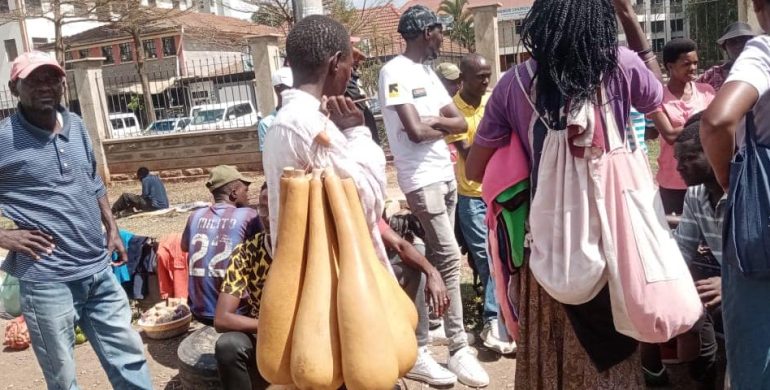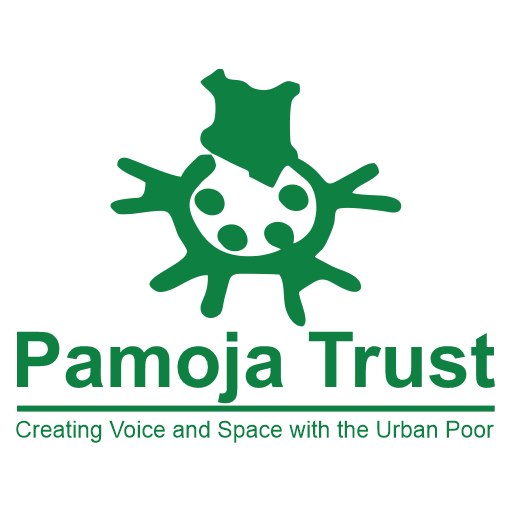In the outskirts of Nairobi lies the infamous Kawangware settlement, a suburb that hosts a good number of refugees and asylum seekers. We engage Alexis Nyabenda, one of the key figures in Kawangware, who runs and coordinates refugee affairs within the informal settlement. With his refugee status having been renewed, Alexis, a father of 3 and an entrepreneur, hailed as one of the pioneers of integration in Kawangware reminisced about his time back in Burundi, where life was promising, giving him a sense of belonging and ownership coupled with the patriotism of his home country.
Nyabenda recalls those times before the ReBUILD intervention when he used to grapple with understanding the local contexts of his newly found home, community structures and administrative offices within the settlement located in Dagoretti North sub-county of Nairobi County. Nyabenda narrates how he had been struggling to evade local enforcement officers within the settlement who patrolled daily to curb cases of illegal licenses, tax evasion and indiscriminate busy practices. He opines that the city regulations were discriminatory and unjust towards refugees and, to a great extent, hampered efforts to build refugee livelihood options and self-reliance within Nairobi informal settlements.
“We used to operate in fear and every time we would shut down businesses and open later in the evenings when we are certain of the absence of enforcement officers, owing to the lack of business permits.”
Alexis Nyabenda
This statement already gives a gloomy picture and prediction of the refugee predicaments that have not only rendered refugees destitute but also denied them the sense of belonging and the vigour to live a fulfilling, dignified life in Nairobi.
The re:BUiLD program targeted refugees and asylum seekers within Nairobi to enable refugee access to social-economic services and cohesion building within local communities towards enhancing self-reliance and resilience building to curb refugee urban shocks and burgeoning unemployment rates among vulnerable and marginalized groups. With Nyabenda having stayed for more than 6 years in Nairobi, he could not imagine struggling with the city bustles which are further being exacerbated by the refugee lack of access to support documents like business permits, Kenya Revenue Allocation personal identification numbers and work permits not to mention the rampant discrimination and exclusion of refugee and asylum seekers in local decision making platforms and government planning and budgeting forums.
With increased interventions towards creating and amplifying refugee voices, Alexis has overtime, understood the dynamics and complexities associated with engaging in local forums for city planning, budgeting and project prioritization. With the ever-growing refugee population within Nairobi settlement, there was an urgent and critical need to enhance refugee capacity in discussing and engaging in local planning Forums.
The re:BUiLD project, which Alexis has been part of, explored the vast mechanisms towards realizing refugee inclusion. The interventions included but were not limited to trainings on county budget making processes, linkages between refugees and various county committees on specific thematic areas, conversation with technical working groups at county level, creating networks with local and community thematic groups and establishment of refugee and host community structures that brought refugees to common platforms with host communities and equally enable refugee leaders like Alexis interact and build alliances with community leaders, area administration offices, sub county departmental heads and overall social movements in informal communities.
Nyabenda has since gained a wealth of experience from the trainings that also included skill enhancements in village savings and loaning associations for access to credit. With charisma and aggression to fight for refugee spaces, Alexis has not only been able to engage local enforcement officers but has since been able to defend refugee traders from extortion and harassment by the officers giving him more prowess in settling refugee and trade officers disputes such as lack of permits and illegal practices. Through his cordial relations with the local head of enforcement team, Alexis has enabled the release of refugee traders who have been arrested and their properties confiscated.
Discerning the complex scenarios he has intervened, Alexis delights in explaining the vast missions he has pursued to rescue refugees from detention,
“I have had to understand local laws and their implications to sensitize my refugee community on adherence to regulations. My participation in local budgeting forums has made me realize that, contrary to prevailing circumstances, there is light at the end of the tunnel, and the refugee future in Kenya’s urban economy is bright.”
With the knowledge he has acquired in savings and loaning trainings from Pamoja Trust and the wealth of connections he has made with county cooperative officers, Alexis opted to initiate a savings and credit cooperative project targeting mobile vendors along Ngong road, a major road near Kawangware. This he says was swayed by the struggles and predicaments faced by refugee mobile vendors which lured him into forming a vehicle that would advance and formalize their businesses through capital acquisition and create a safe space for complaint handling, enable vendors to access cheap credit and address their issues to the county government. The SACCO has since gained traction with over 28 refugees onboarding thus allowing growth and availability of cheap credits, a monster the vendors have had to contend with each day.
Nyabenda now celebrates his miniature achievement hoping that in the near future, his work will bring dignity to refugee life but also enable his business to grow as a result of the conducive environment and regulations.


